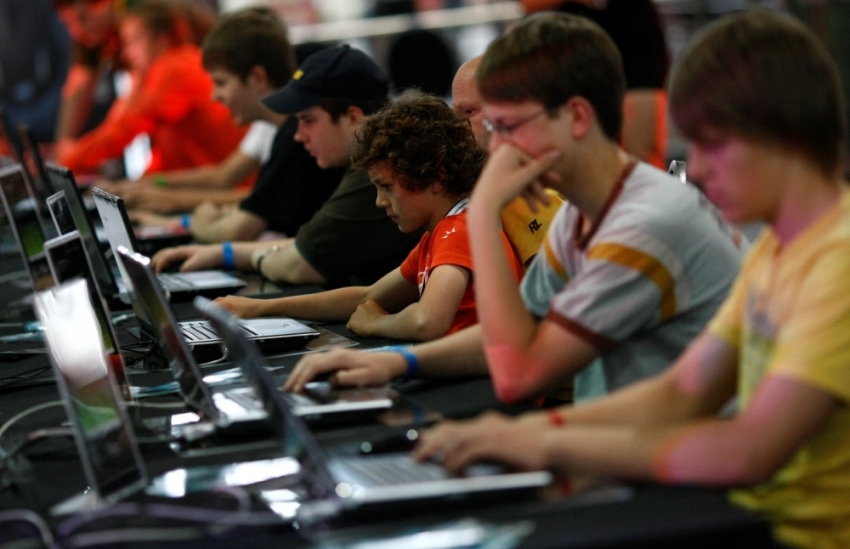Porn and 'World of Warcraft' Video Games 'Digitally Rewire' Boys' Minds Into 'Manhood Meltdown,' Says Distinguished Psychologist

A distinguished psychologist has argued in a recently published book that pornography and video games are leading young men into alarmingly high rates of "social isolation" and a "modern meltdown of manhood."
Dr. Philip Zimbardo, former president of the American Psychological Association and author of over 50 books, has stated that the two sources of online entertainment are harming young men mentally.
Zimbardo recently told the BBC that pornography and online video games like "World of Warcraft" have "digitally rewired" young men's minds.
"Now, with freely available pornography, which is unique in history, they are combining playing video games, and as a break, watching on average, two hours of pornography a week," said Zimbardo to BBC.
"When I'm in class, I'll wish I was playing 'World of Warcraft.' When I'm with a girl, I'll wish I was watching pornography, because I'll never get rejected."
Kim I. Mills, spokesperson with the American Psychological Association, told The Christian Post that Zimbardo's work represents important research.
"APA supports well-designed empirical research to find answers to the many questions studied by psychological scientists, often through publication in our peer-reviewed journals," said Mills. "Zimbardo's latest work examines an important research question. We look forward to future research on the topic, both by. Zimbardo and others."

Regarding possible similar research, Mills told CP that the APA had recently appointed a task force to look into the potential link between violent video games and real world behavior.
"We anticipate that the task force will stay within that charge, i.e., it is not likely to look at the issue of the effects of pornography," said Mills.
"The task force is expected to send its report, along with an updated resolution, to APA's Council of Representatives … in August."
Released last week and coauthored by Nikita D. Coulombe, Zimbardo's book, titled Man (Dis)connected: How Technology Has Sabotaged What It Means to Be Male, examines the "modern meltdown of manhood and how this is manifest in the lives of young men today."
"Zimbardo argues that readily available hardcore pornography and exciting gaming realities provide digital alternatives that are less demanding and far more appealing for many than sex, sports and social interaction in the real world," reads the book's description on Amazon.
"Immersion in these alternative realms is playing havoc with these boys' cognitive development, their ability to concentrate and their social development, allowing girls to excel in the real world where social skills are a source of success."
Dr. Paul Weigle, spokesman for the American Academy of Child & Adolescent Psychiatry, also told CP that Zimbardo's findings have merit.
"It seems likely that for a significant portion of the population of adolescent boys video gaming and online pornography can contribute to social isolation," said Weigle.
Weigle of AACAP also told CP that the connection was not absolute, as teenage boys could have a "limited exposure" to video games and pornography and still not suffer from social isolation.
"With teen boys, some exposure to pornography is normative and of course playing video games is a normative behavior as well," said Weigle.
"For those who engage in video game play in a controlled amount and limited exposure, can be a healthy pastime. However there is a minority, a significant minority of boys who get into an excessive pattern of video game play, which can have negative effects on multiple aspects of mental health."
Not all are convinced of Zimbardo's conclusions. Keith Stuart, editor at the Guardian who has written about digital media and video games for years, takes issue with the new book's theory.
In a column published Monday, Stuart argued that even excessive gamers can form communities and avoid social isolation like that which Zimbardo warns about.
"These days, a game lives and dies by its ability to attract and maintain a talkative and engaged community," wrote Stuart.
"The whole meaning and purpose of video games has shifted: for many players, they have become venues for social interaction rather than solitary confinement."
Stuart cited events in the United Kingdom like Wild Rumpus, GameCity, and Feral Vector where gamers and game developers gather and socialize and exchange ideas.
"There are similar gatherings all around the world. I am certain there are still isolated individuals who play alone, but I am equally certain they are not representative," continued Stuart.
"Games, increasingly, are not a hobby, they are a cultural force, no less or more than music and movies. They unite people ... and they allow the dissemination of challenging ideas."



























